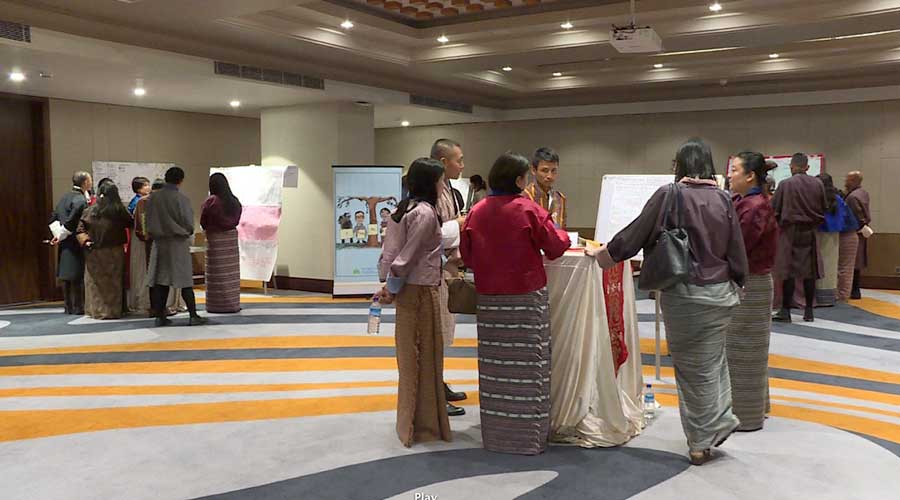
An inclusive development planning programme is a must to ensure that everyone in the community reaps its benefit. To achieve this, the Bhutan Centre for Media and Democracy (BCMD) trained local leaders of Thimphu and Paro to frame development plans and programmes through their people’s participation recently.
The centre’s GNH-based planning toolkit was applied while chalking out the plans. Local leaders of the two districts shared their experiences of adopting this inclusive planning process at a meeting in the capital yesterday.
According to Hungrel Gup, Sherub Lham from Paro, they have overlooked many emerging social issues like waste management, youth unemployment, and gender disparity in the past. They were not incorporated into the community-based programmes.
However, this will no longer be the case, asserts the Hungrel Gup.
“Henceforth, we will allow all the people in the community including those living with disability to participate in the consultation meetings to formulate plans. We will include their needs and issues in our plans. Civil servants and youth will also have innovative ideas to share in the meeting, so we will seek their views. This way, our planned programmes will cover everything.”
 Such an inclusive planning process will help the Local Government members to share ground reality while preparing the 13th Five-Year-Plan (FYP).
Such an inclusive planning process will help the Local Government members to share ground reality while preparing the 13th Five-Year-Plan (FYP).
‘‘BCMD programme like this has immensely benefitted us, who are elected as the third LG leaders. The 12th FYP is nearing the end and the 13th FYP is going to happen soon. So, to develop the 13th plan, it will be an enriching experience for newly elected leaders like us,” says the Kawang Gewog Mangmi, Sonam Dorji.
Parliamentarians are also supportive of such a method of the holistic planning process at the community level.
“The community leaders now have a holistic perspective on how to combat domestic problems and youth unemployment, and address other growing social issues. Once the budget is allocated to the local government, I think they will prioritise these issues in the plan document,” tells the Member of Parliament from Khar-Yurung Constituency in Pema Gatshel, Tshering Choden.
The BCMD launched the GNH-based planning toolkit last October. It has eight tools, which are based on four GNH pillars including good governance and relationship mapping.
“LG members are beginning to realise they have left out the vulnerable section of the population. For example, senior citizens, people with disabilities, unemployed young people and single mothers. These people are not consulted for their needs. So through our training, they are beginning to realise that their consultation is more inclusive if every individual participates in it,” shares Chencho Lhamu, the BCMD’s Executive Director.
If financial resources are adequate, the centre plans to replicate similar training for local leaders in other districts.
The Bhutan Centre for Media and Democracy is a Civil Society Organisation to ensure a vibrant democracy by actively engaging citizens in the democratic process.
Karma Wangdi
Edited by Pema Lhaden






